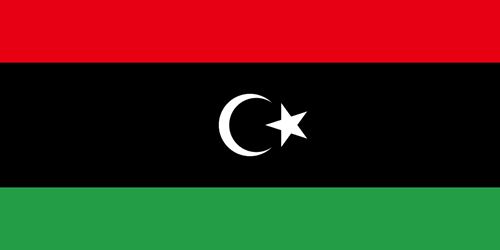Kidnapping and Church Bombing Mark Libyan Violence

Until the murder of US ambassador Christopher Stevens on September 11, 2012, many Americans had paid little attention to Libya since Moammar Gaddafi was deposed.
However, nearly two years after the start of the uprising that led to the strongman's ouster, and after a recent kidnapping and church bombing, the situation in Libya, although not front page stories in American media, reflects upon the environment that was introduced by the US decision to intervene.
The 2012 elections, the first in Libya in 40 years, produced a near-majority of thirty-nine parliamentary seats for the liberal coalition, out of eighty possible, and only seventeen seats for the Muslim Brotherhood's Justice and Construction Party. As such, many supporters of the NATO intervention believed that extremists would not have much influence in Libya.
However, militias still dot the landscape by operating in virtually independent fiefdoms, refusing to abandon their arms and support the government.
Libyan National Congress President Mohammed el-Megarif recently declared the southern half of Libya a "military zone" because of drug, people, and arms trafficking stemming from the civilian government's lack of authority there.
South Libya borders Algeria and Niger and is near Mali, whose military coup last year and the severing of the northern end of the country to jihadists is traceable to the chaos created in Libya. A UN-approved and African-led intervention is in the works to oust the rebels there.
Right before Christmas, a report obtained by the UK Telegraph revealed that Christianity in the Middle East "was close to extinction" and "claims politicians have been 'blind' to the extent of violence faced by Christians in Africa, Asia, and the Middle East." The fear for many Christians in Libya is that with the lack of central authority to protect them, they will be among the first to face sectarian retribution by Islamists.
So, just before the new year, the bombing of a stone church in Dafniya, a village near Misrata, one of the areas where militias dominate, fulfilled some of those fears when two Coptic Christians were killed. This was the first acknowledged attack against Christians in Libya, a religious minority who are about three percent of the population, but whose presence in the country dates back to the Roman Empire.
After the bombing, the U.S. State Department issued a warning that "sporadic episodes of civil unrest have occurred throughout the country" and "U.S. citizens should avoid areas of demonstrations and exercise caution if in the vicinity of any large gatherings, protests, or demonstrations, as even demonstrations intended to be peaceful can turn confrontational and escalate into violence."
Also following the church bombing, and in a painfully transparent sign that the central government is weak, was the kidnapping of Benghazi police captain and investigative chief Abdel-Salam al-Mahdawi.
Al-Mahdawi was abducted at gunpoint and his current location is unknown. This is the second major security lapse for the Benghazi police hierarchy in the last two months. In November, Police Chief Faraj al-Deirsy was shot multiple times by unknown assailants and died.
Although most Americans are aware of the security situation that led to the demise of Ambassador Stevens last September, Libya, with the kidnapping and church bombing, still endures the consequences of the Western intervention nearly two years later.




